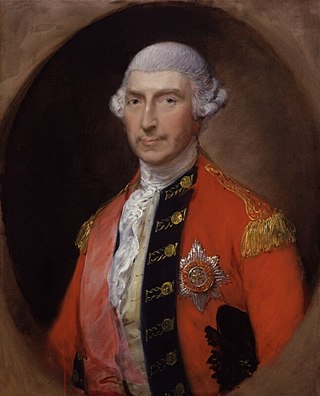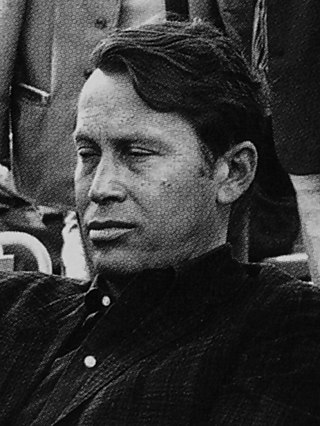
Robert Lee Frost was an American poet. His work was initially published in England before it was published in the United States. Known for his realistic depictions of rural life and his command of American colloquial speech, Frost frequently wrote about settings from rural life in New England in the early 20th century, using them to examine complex social and philosophical themes.

Field Marshal Jeffery Amherst, 1st Baron Amherst, was a British Army officer and Commander-in-Chief of the Forces in the British Army. Amherst is credited as the architect of Britain's successful campaign to conquer the territory of New France during the Seven Years' War. Under his command, British forces captured the cities of Louisbourg, Quebec City and Montreal, as well as several major fortresses. He was also the first British Governor General in the territories that eventually became Canada. Numerous places and streets are named for him, in both Canada and the United States.

Richard Purdy Wilbur was an American poet and literary translator. One of the foremost poets of his generation, Wilbur's work, composed primarily in traditional forms, was marked by its wit, charm, and gentlemanly elegance. He was appointed the second Poet Laureate Consultant in Poetry to the Library of Congress in 1987 and received the Pulitzer Prize for Poetry twice, in 1957 and 1989.

Alexander Meiklejohn was a philosopher, university administrator, educational reformer, and free-speech advocate, best known as president of Amherst College.

Joseph Bartlett Eastman was a member of the Interstate Commerce Commission from 1919 until his death in 1944.

Edward Tuckerman was an American botanist and professor who made significant contributions to the study of lichens and other alpine plants. He was a founding member of the Natural History Society of Boston and most of his career was spent at Amherst College. He did the majority of his collecting on the slopes of Mount Washington in the White Mountains of New Hampshire. Tuckerman Ravine was named in his honor. The standard botanical author abbreviation Tuck. is applied to species he described.

John Erskine was an American educator and author, pianist and composer. He was an English professor at Amherst College from 1903 to 1909, followed by Columbia University from 1909 to 1937. He was the first president of the Juilliard School of Music. During his tenure at Columbia University he formulated the General Honors Course—responsible for inspiring the influential Great Books movement. He published over 100 books, novels, criticism, and essays including his most important essay, The Moral Obligation to Be Intelligent (1915).
Liberation News Service (LNS) was a New Left, anti-war underground press news agency that distributed news bulletins and photographs to hundreds of subscribing underground, alternative and radical newspapers from 1967 to 1981. Considered the "Associated Press" for the underground press, at its zenith the LNS served more than 500 papers. Founded in Washington, D.C., it operated out of New York City for most of its existence.
Marshall Irving Bloom was an American journalist and activist, best known as co-founder in 1967 of the Liberation News Service, the "Associated Press" of the underground press.

John Joseph Wieners was an American poet.

William Rutherford Mead was an American architect who was the "Center of the Office" of McKim, Mead, and White, a noted Gilded Age architectural firm. The firm's other founding partners were Charles Follen McKim (1847–1909), and Stanford White (1853–1906).

Julius Hawley Seelye was a missionary, author, United States Representative, and former president of Amherst College. The system of Latin honors in use at many universities worldwide is said to have been created by him.
Joseph Moncure March was an American poet, screenwriter, and essayist, best known for his long narrative poems The Wild Party and The Set-Up.
Frank Learoyd Boyden was headmaster of Deerfield Academy from 1902 to 1968.
Joseph Langland was an American poet.
George Rolfe Humphries was a poet, translator, and teacher.
Frederic Brewster Loomis was an American paleontologist. Educated at Amherst College and the Ludwig Maximilian University of Munich, he spent his entire professional career at Amherst. His specialty was vertebrate paleontology. Many fossils he uncovered during his extensive field work are still exhibited at Amherst's Beneski Museum of Natural History. He was a fellow of the American Academy of Arts and Sciences, a fellow of the Geological Society of America, and president of the Paleontological Society.

Howard R. Wolf is an American author, educator and lecturer.
Sheridan de Raismes Gibney was a writer and producer in theater and film. He attended Amherst College and received an honorary M.A. from it. He later served as an instructor at Hobart and William Smith Colleges. He began in film in 1931, but tended to see himself more as a playwright. He received 2 Academy Awards for Best Screenplay and Best Story for The Story of Louis Pasteur, sharing the award with Pierre Collings. He particularly had a fondness for Restoration comedy. He would later become President of the Screen Writers Guild twice. As a member of the League of American Writers, he suffered from the Hollywood blacklist. Jack Warner later retracted the claim Gibney was a Communist and Gibney had proposed the group criticize Soviet actions against Finland although that ultimately was unanimously voted down. In his later life Gibney did work in television.

Margaret Sutton Briscoe Hopkins was an American short story writer.











